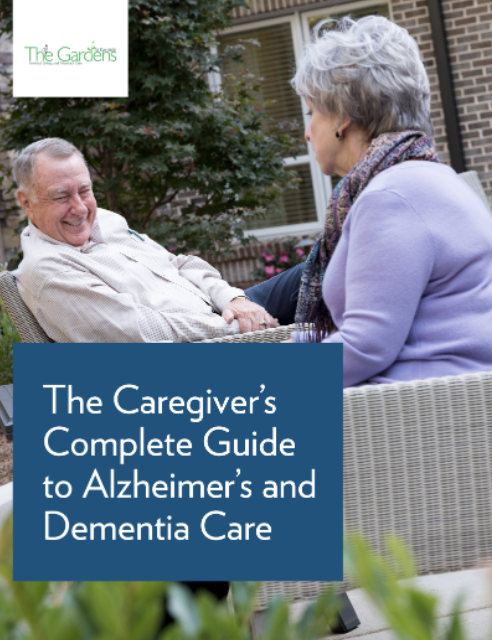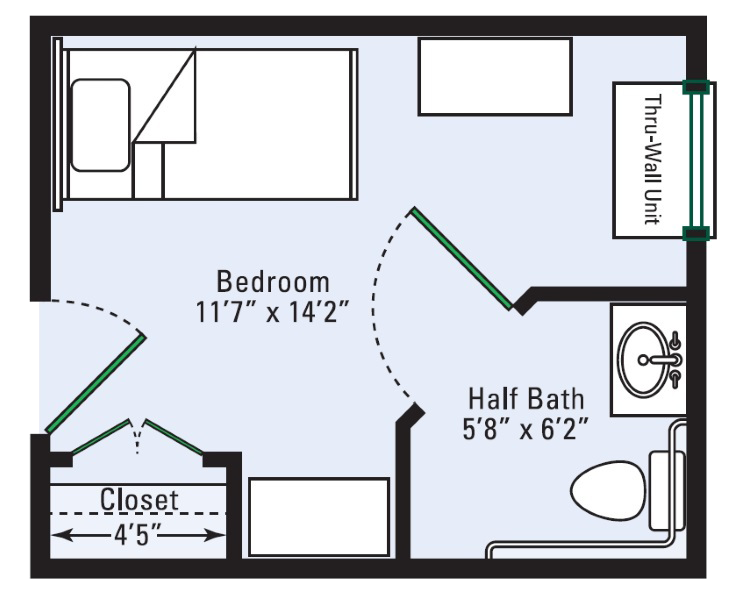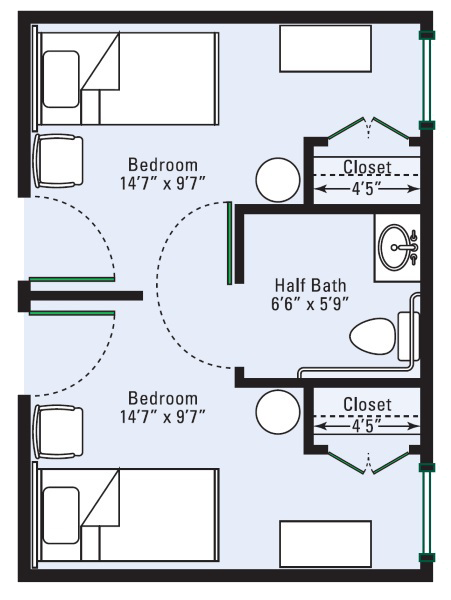Frequently Asked Questions
What is memory care like in Greenville, SC?
Memory care is a specialized program designed for individuals with memory impairment, Alzheimer's disease, or other forms of dementia. It can be offered as a standalone service or as a dedicated area within an assisted living facility. At The Gardens at Eastside, our memory care program is designed to provide personalized support, encouragement, and relationships for each of our residents. Our program is backed by Arbor's 30+ years of experience in dementia care, ensuring the best care possible for our residents.
At what stage should someone with dementia go into memory care in Greenville, SC?
If your loved one has been diagnosed with Alzheimer's or dementia and you've noticed that they're struggling with daily activities, require frequent support, or feel lonely and scared living at home, it might be time to consider memory care. Seniors with memory issues may engage in unsafe behaviors, such as wandering or physical risk-taking, that can lead to falls.
Memory care facilities and programs are specifically designed to cater to seniors with memory loss or other cognitive impairments related to aging. These facilities offer a peaceful and dignified environment that fosters independence and choice while minimizing safety risks and distress. You can read our blog, 6 Signs That It's Time for Dementia Care to find out more.
What is the difference between memory care and assisted living?
Both memory care and assisted living provide care and support to people with various health issues, including cognitive impairments. However, memory care is designed specifically for individuals with Alzheimer's and other forms of dementia. It offers dementia-friendly activities and has staff trained to understand the psychological and physical effects of cognitive impairments. To learn more about the key differences between the two, you can read this post on The Arbor Company blog.
What is the difference between memory care and skilled nursing in Greenville, SC?
Although nursing homes and memory care communities both offer care for individuals with dementia and Alzheimer's, there are a few differences between the types of care they provide. Both facilities offer round-the-clock staff and supervision to ensure residents' safety. However, memory care communities offer a more flexible option. They have specialized staff members who are trained in caring for individuals with dementia, and they provide prepared meals to help preserve residents' dignity and independence. Additionally, memory care communities have safe and secure environmental features, and they provide a structured day of activities that can help prevent behaviors associated with anxiety and depression.
Nursing homes or skilled nursing facilities are ideal for those who need more hands-on assistance and monitoring, particularly if they have complex medical needs and require a clinical environment. They offer 24-hour care to seniors with complex medical conditions, providing the highest care possible outside of a hospital. This is often the best choice for those who need help with tasks beyond the activities of daily living
What is a memory care specialist?
A memory care specialist is a certified professional responsible for creating customized care plans for residents with memory impairments. They assist with daily tasks such as personal care and medical needs and use a specialized approach to navigate the complexities of memory care to provide the best possible care for your loved one.
What does memory care cost in Greenville, SC?
Memory care costs are usually 20-30% higher than assisted living costs. The average monthly rate for a memory care facility in South Carolina is $9,977, but pricing can vary widely depending on the location and level of dementia care needed.
Will Medicare cover memory care in Greenville, SC?
Medicare typically does not cover the cost of long-term memory care services in Greenville, SC, or anywhere else in the United States. Medicare is primarily designed to cover medically necessary services, such as hospital stays, doctor visits, and certain medical treatments. However, individuals with Medicare may be eligible for certain medical services related to memory care, such as doctor visits, diagnostic tests, and prescription medications to manage symptoms of dementia. Additionally, Medicare Advantage plans, which are offered by private insurance companies approved by Medicare, may provide some coverage for memory care services, but coverage varies by plan.






.jpg?width=1500&height=1000&name=Shot%204%20-%20Beauty%20Salon_1051%20(1).jpg)






